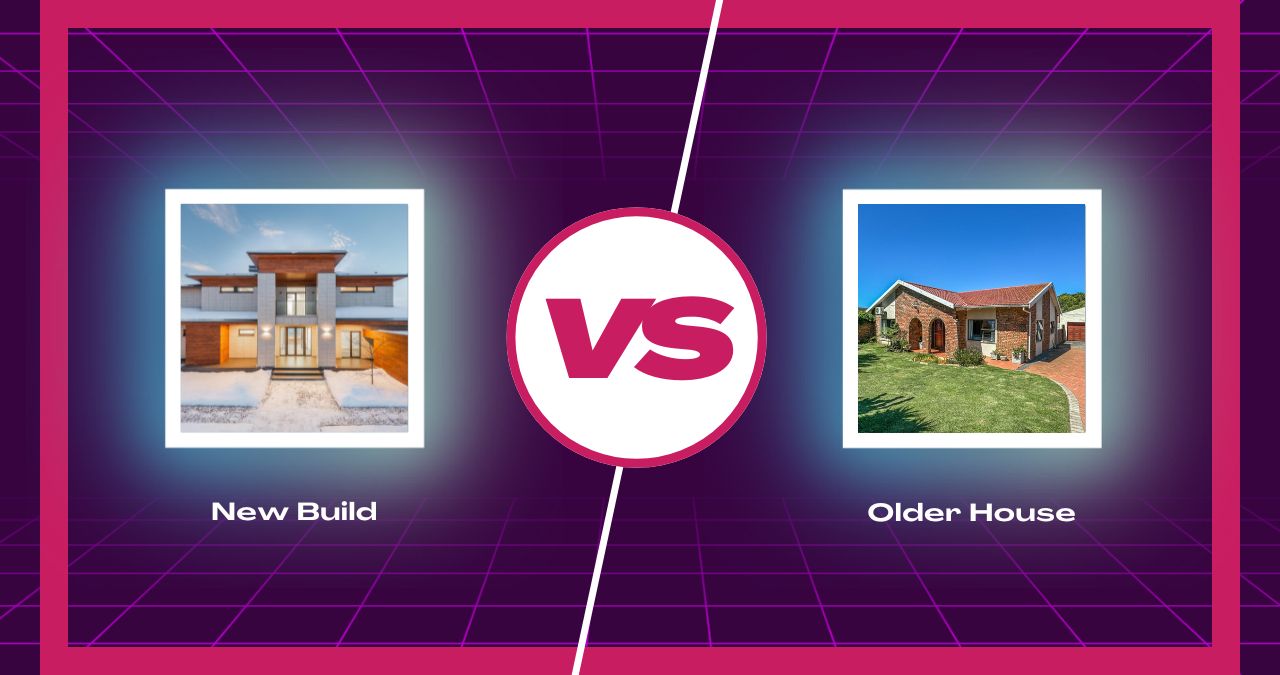When buying a property, one of the most important decisions is whether to purchase a newly built home or an older house. Each option offers unique advantages and challenges that cater to different preferences, lifestyles, and financial circumstances. This guide will help you weigh the pros and cons of new builds versus older houses to make an informed decision.
Advantages of Buying a New Build
- Modern Design and Features
- Contemporary Layouts: Open-plan living spaces, larger windows, and flexible rooms are common in new builds, catering to modern lifestyles.
- Energy Efficiency: New builds often come with energy-efficient materials, insulation, and appliances, reducing utility bills and environmental impact.
- Technology Integration: Many new homes are pre-fitted with smart home technology, such as automated lighting, security systems, and Wi-Fi-ready setups.
- Low Maintenance Costs
- Brand-New Condition: From roofing to plumbing, new builds require minimal repairs or replacements for years after purchase.
- Warranties: Builders often provide warranties, covering structural defects and other issues for 5–10 years.
- Customisation Options
- Buyers may have the opportunity to choose finishes, paint colours, and fixtures during construction, personalising the home before moving in.
- No Chain Involved
- Purchasing a new build eliminates the risk of delays associated with property chains, ensuring a smoother buying process.
- First-Time Buyer Incentives
- Developers and governments often offer incentives, such as reduced deposits, grants, or stamp duty exemptions for new builds.
Disadvantages of Buying a New Build
- Higher Initial Costs
- New builds often come at a premium, especially in sought-after locations, due to modern features and low maintenance appeal.
- Smaller Plot Sizes
- To maximise land use, new builds typically have smaller gardens and less outdoor space than older properties.
- Potential Quality Issues
- Some developers may cut corners during construction. Buyers should inspect homes carefully or hire a professional to identify potential defects.
- Limited Character
- New builds may lack the charm and architectural detail that older houses offer, often feeling more uniform.
Advantages of Buying an Older House
- Character and Charm
- Older homes boast unique features, such as high ceilings, intricate mouldings, and period details, appealing to buyers who value history and character.
- Larger Plot Sizes
- Older properties are often built on more spacious plots, offering bigger gardens and more outdoor areas.
- Established Neighbourhoods
- Older houses are usually located in well-established communities with mature trees, amenities, and a sense of history.
- Potential for Value Appreciation
- Renovating or restoring an older house can significantly increase its market value, making it a smart investment for those willing to put in the effort.
- Lower Initial Cost
- Older houses are often more affordable than new builds, especially if they require updates or renovations.
Disadvantages of Buying an Older House
- Higher Maintenance Costs
- Older homes may require significant repairs, such as roof replacements, plumbing updates, or rewiring, leading to higher ongoing expenses.
- Energy Inefficiency
- Older properties often lack proper insulation and modern energy-efficient systems, resulting in higher utility bills.
- Outdated Layouts
- Traditional floor plans may not suit contemporary lifestyles, with smaller rooms and a lack of open-plan spaces.
- Hidden Issues
- Older houses may have structural problems, mould, or outdated systems that are expensive to address. A thorough inspection is essential.
- Limited Amenities
- While charming, some older properties may lack modern conveniences such as en-suite bathrooms, built-in wardrobes, or integrated kitchens.
Key Considerations When Deciding
- Budget
- Assess not just the purchase price but also the long-term costs, including maintenance, renovations, and energy bills.
- Lifestyle Preferences
- Consider whether you prioritise modern conveniences or historical charm. Your daily routines and family needs should guide your choice.
- Location
- New builds are often on the outskirts of cities, while older homes may be closer to city centres and established amenities.
- Time Investment
- If you’re willing to invest time in renovating or personalising a home, an older property might be a better fit.
- Future Resale Value
- Both new and older properties can appreciate in value, but the resale potential will depend on location, market trends, and property condition.
Conclusion
Whether you choose a new build or an older house depends on your personal preferences, financial situation, and long-term goals. New builds offer modern conveniences, energy efficiency, and low maintenance, while older homes provide character, larger plots, and potential for customisation. Carefully evaluate the pros and cons of each option to find the property that best suits your needs.
Disclaimer
The content on this website is for informational purposes only and does not constitute financial, investment, or real estate advice. Readers are encouraged to consult a qualified financial advisor or a registered real estate agent for professional guidance tailored to their specific needs. Propertify is not liable for any actions taken based on the information provided here.









